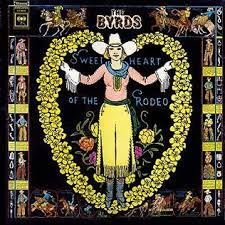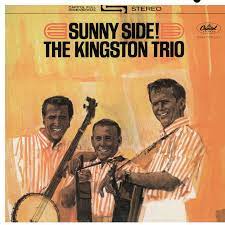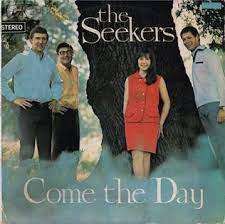Tutorial Pricing: $3.25ea OR any 10 for $10
(use code "Any10410" at checkout)
Paid Requests for $25ea
(comes with any 8 freebies -> so 9 for $25)
100's Of Free Demos & Chord Sheets
Songs By Buffalo Springfield
On The Acoustic

Welcome to my songs by Buffalo Springfield page where you'll find a few songs from this band you can easily learn on the acoustic guitar.
You'll find free demos, sample videos, chord sheets, rhythm tips and more. If you require a full instructional video tutorial you can get one for a small fee. Discount pricing listed above.
Jump menu to quickly access the artists on this page.
Songs By Buffalo Springfield
Chords, Samples, Demos, Tutorials
1. For What Its Worth
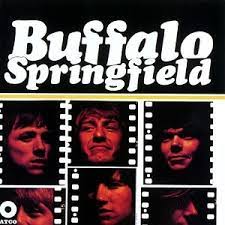
For What It's Worth was recorded Buffalo Springfield and written by the group's guitarist and vocalist Stephen Stills. The song was released in January 1967 as a single and later included on their self-titled debut album.
The song is widely interpreted as a reflection of the social and political unrest that was prevalent in the United States during the mid-1960s, particularly related to the Vietnam War and civil rights movement. The lyrics describe a confrontation between protesters and police, and the confusion and fear that can arise in such situations.
The recording features Stills on lead vocals and guitar, with fellow band members Neil Young on guitar and Richie Furay on backing vocals. The song is notable for its distinctive guitar riff and the use of tremolo and reverb effects.
The song was not initially a commercial success, only reaching #7 on the Billboard Hot 100 chart, but it has since become one of the most enduring and iconic songs of the 1960s. It has been featured in numerous films and TV shows, and has been covered by a wide range of artists. In 2004, Rolling Stone ranked "For What It's Worth" #63 on its list of the 500 Greatest Songs of All Time.
- Drop D Tuning: No
- Capo: No
- Rhythm: a steady up and down will work
- Picking: a little
- Chords: E, A, D, C, G/A
Jump To Top
2. Kind Woman
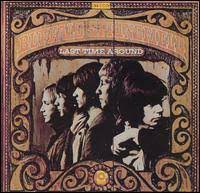
Kind Woman from Buffalo Springfield, was written by the group's bassist and vocalist Richie Furay. The song was included on their third and final album, "Last Time Around," which was released in 1968.
"Kind Woman" is a gentle, acoustic-based ballad that showcases Furay's vocals and features intricate guitar work from Stephen Stills. The song has been interpreted as a tribute to Furay's wife, Nancy, and as a reflection on the joys and challenges of a long-term relationship.
The recording features Furay on lead vocals and rhythm guitar, with Stills on lead guitar, Neil Young on piano, and Jim Messina on bass. The song's arrangement is notable for its use of harmonies and counterpoint, particularly in the instrumental break.
"Kind Woman" was not released as a single and did not receive significant airplay, but it has since become a fan favorite and has been covered by several artists. The song is considered one of the highlights of "Last Time Around," which was recorded during a period of tension and conflict within the band and marked their final studio album together.
- Drop D Tuning: No
- Capo: No
- Rhythm: down down up down up and repeat
- Picking: Yes
- Chords: C, G, C#, D, Db, Em
Jump To Top
3. Mr Soul
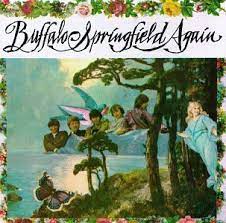
Mr. Soul is a song by Buffalo Springfield, written by the group's guitarist and vocalist Neil Young. The song was included on their second album, "Buffalo Springfield Again," which was released in 1967.
"Mr. Soul" is a driving, guitar-driven rock song that showcases Young's distinctive voice and musical style. The song's lyrics are often interpreted as a reflection on Young's experience as a young musician in the public eye and his struggle to maintain his artistic integrity in the face of commercial pressures.
The recording features Young on lead vocals and guitar, with Stephen Stills on backing vocals and lead guitar, and Richie Furay on rhythm guitar. The song's arrangement is notable for its use of distortion and feedback, which was relatively uncommon in mainstream rock music at the time.
"Mr. Soul" was released as a single in the United States and Canada, but did not chart. However, the song has since become a classic of the psychedelic rock era and has been covered by several artists. The song's memorable guitar riff and Young's impassioned vocal performance have made it a favorite of many Buffalo Springfield fans.
- Drop D Tuning: No
- Capo: No
- Rhythm: downstrokes
- Picking: Yes a little in the rhythm
- Chords: E, A, D
Jump To Top Of Songs By Buffalo Springfield
4. On The Way Home
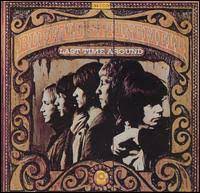
On the Way Home was written by the group's guitarist and vocalist Neil Young. The song was included on their third and final album, "Last Time Around," which was released in 1968.
"On the Way Home" is a melodic, country-tinged rock song that features Young's distinctive voice and harmonies from the rest of the band. The song's lyrics are often interpreted as a reflection on the end of a journey or relationship, and the mixed feelings of nostalgia and anticipation that can come with such a transition.
The recording features Young on lead vocals and guitar, with Richie Furay on backing vocals and rhythm guitar, Stephen Stills on backing vocals and bass guitar, and Jim Messina on lead guitar. The song's arrangement is notable for its use of acoustic and electric guitars, as well as the vocal harmonies that underpin the chorus.
"On the Way Home" was not released as a single and did not receive significant airplay, but it has since become a fan favorite and has been covered by several artists. The song is considered one of the highlights of "Last Time Around," which marked the end of Buffalo Springfield's brief but influential career.
- Drop D Tuning: No
- Capo: 2nd fret
- Rhythm: root up down up root up down up and repeat
- Picking: No
- Chords: C, F, Cmaj7, Fmaj7, Em, Dm, A#, Bbmaj7
Jump To Top
5. Rock And Roll Woman
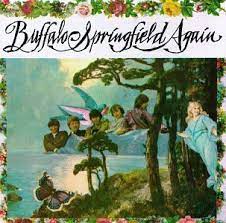
Rock and Roll Woman is a song by Buffalo Springfield, written by the group's bassist and vocalist Bruce Palmer. The song was included on their second album, "Buffalo Springfield Again," which was released in 1967.
"Rock and Roll Woman" is an up-tempo rock song with a driving beat and catchy guitar riff. The song's lyrics are often interpreted as a commentary on the changing social norms of the mid-1960s, particularly related to gender roles and sexual liberation.
The recording features Palmer on lead vocals and bass guitar, with Stephen Stills and Neil Young on guitar and Richie Furay on backing vocals. The song's arrangement is notable for its use of layered guitars and harmonies, as well as a prominent bassline that anchors the rhythm section.
"Rock and Roll Woman" was released as a single in the United States, but did not chart. However, the song has since become a classic of the rock genre and has been covered by several artists. The song's upbeat energy and catchy melody have made it a favorite of many Buffalo Springfield fans.
- Drop D Tuning: No
- Capo: No
- Rhythm: down down up down up down up and repeat
- Picking: a riff played in various places
- Chords: F, D, Am7, Dm7 (optional)
Jump To Top Of Songs By Buffalo Springfield
Thank you for visiting my songs by Buffalo Springfield page and I hope you found some useful and helpful info here.
If you liked this Buffalo Springfield page, you might also like ... (click images)
Popular Songs From The 60s
